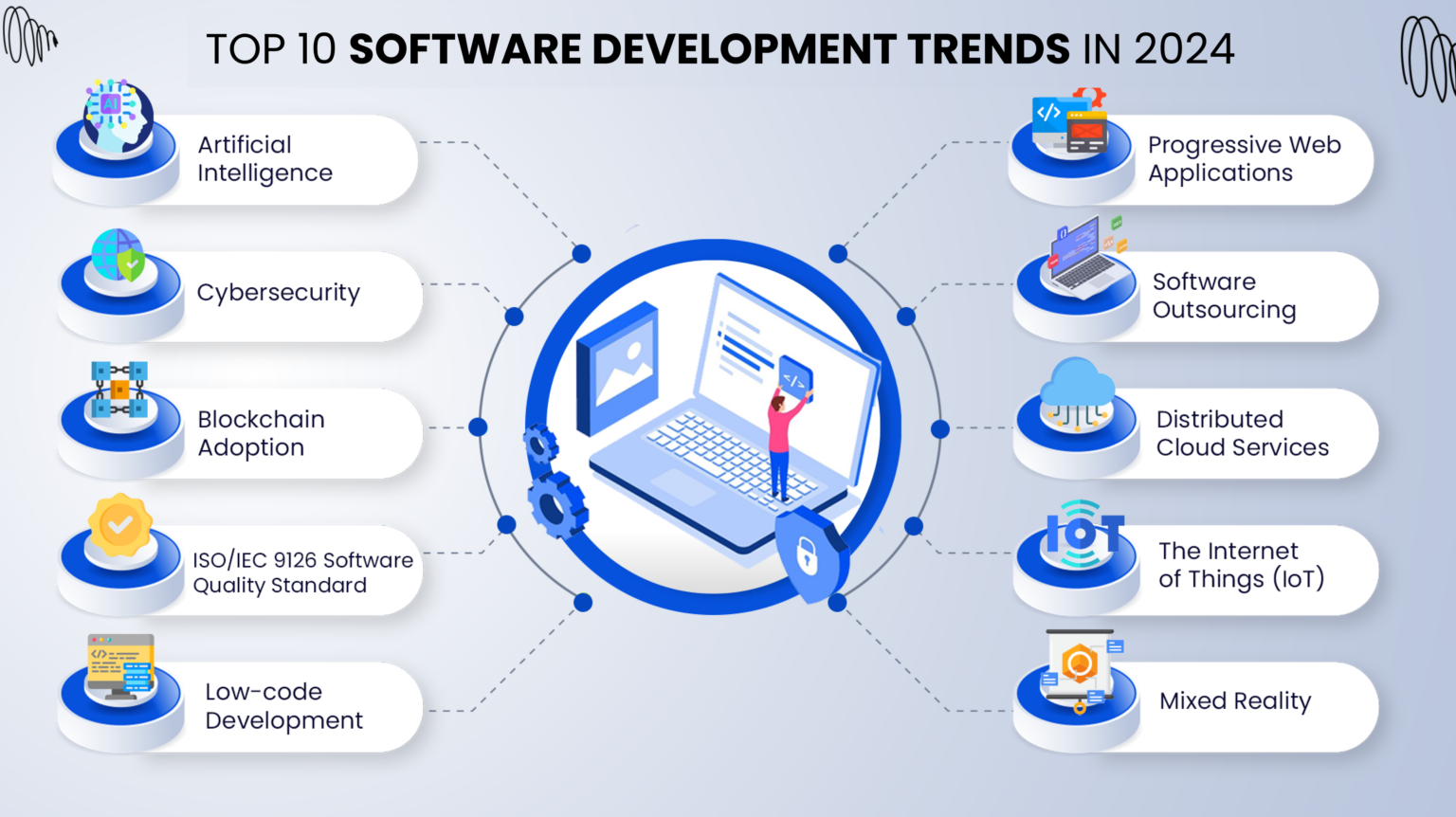Introduction: In 2024, the globe will witness a huge milestone in the technology industry. With about 28.7 million software engineers worldwide, these tech-savvy individuals will account for roughly 0.36% of the world’s anticipated 8.0 billion inhabitants. This relatively little fraction wields enormous power, as the work of software developers affects practically every area of modern life. Developers are the architects of our digital future, from mobile apps to enterprise software.
The Evolution of Software Development
As we move further into the 21st century, the landscape of software development continues to evolve at a rapid pace. One of the most profound changes on the horizon is the integration of artificial intelligence (AI) in the development process. AI is no longer a futuristic concept; it is becoming an integral part of how software is created and maintained.
AI-powered tools are enabling developers to write code faster, identify bugs more efficiently, and predict potential issues before they arise. These tools can analyze vast amounts of data, learning from previous coding patterns to suggest improvements and optimizations. This not only speeds up the development process but also enhances the quality and reliability of software.
The Rise of Low-Code/No-Code Platforms
Another significant trend reshaping the software development industry is the rise of low-code and no-code platforms. These platforms allow individuals with little to no programming experience to create applications. By using intuitive drag-and-drop interfaces, users can build functional software without writing a single line of code.
This democratization of software development means that more people can participate in creating digital solutions, leading to a surge in innovation. Businesses can rapidly develop and deploy applications tailored to their specific needs without relying solely on specialized developers. This shift is especially beneficial for small businesses and startups, which can now leverage technology to compete with larger enterprises.
The Impact on the Tech Industry
The increasing prevalence of AI and low-code/no-code platforms is not just changing how software is developed; it is also transforming the tech industry as a whole. Companies are now able to bring products to market faster, responding to customer needs in real-time. This agility is crucial in a world where consumer expectations are higher than ever.
Moreover, the role of the software developer is evolving. While coding skills remain essential, developers are now expected to have a broader understanding of AI, machine learning, and data analytics. This multidisciplinary approach is necessary to harness the full potential of emerging technologies.
Challenges and Opportunities
With these advancements come new challenges and opportunities. The integration of AI in software development raises questions about job displacement. While AI can automate many routine tasks, it also creates new opportunities for developers to focus on more complex and creative aspects of their work. Upskilling and continuous learning will be vital for developers to stay relevant in this dynamic environment.
On the other hand, the widespread adoption of low-code/no-code platforms could lead to a proliferation of poorly designed applications if not properly managed. Ensuring that these platforms include robust security and quality control measures will be crucial.
Looking Ahead
The future of software development is bright, filled with potential for innovation and growth. As we head into 2024, the 28.7 million developers around the world will continue to play a pivotal role in shaping our digital landscape. Their work, enhanced by AI and empowered by low-code/no-code platforms, will drive the next wave of technological advancements.
In conclusion, while software developers may constitute a small fraction of the global population, their impact is disproportionately large. By embracing new tools and methodologies, developers are not only improving their own craft but also making technology more accessible to everyone. This inclusive approach will ensure that the benefits of digital transformation are felt across all sectors of society, paving the way for a more connected and innovative world.
FAQs on Software Development Trends in 2024
1. How many software developers will there be in 2024?
In 2024, there will be over 28.7 million software developers worldwide.
2. What percentage of the global population will software developers represent in 2024?
Software developers will constitute approximately 0.36% of the global population, which is estimated to be 8.0 billion.
3. How is AI changing the software development industry?
AI is enhancing software development by automating routine tasks, improving code quality, and enabling faster bug detection and resolution.
4. What are low-code/no-code platforms, and why are they important?
Low-code/no-code platforms allow individuals to create software applications with minimal or no coding, making app development accessible to non-developers and accelerating innovation.
5. What skills will be essential for software developers in 2024?
In addition to traditional coding skills, developers will need knowledge of AI, machine learning, and data analytics to stay competitive in the evolving tech landscape.


